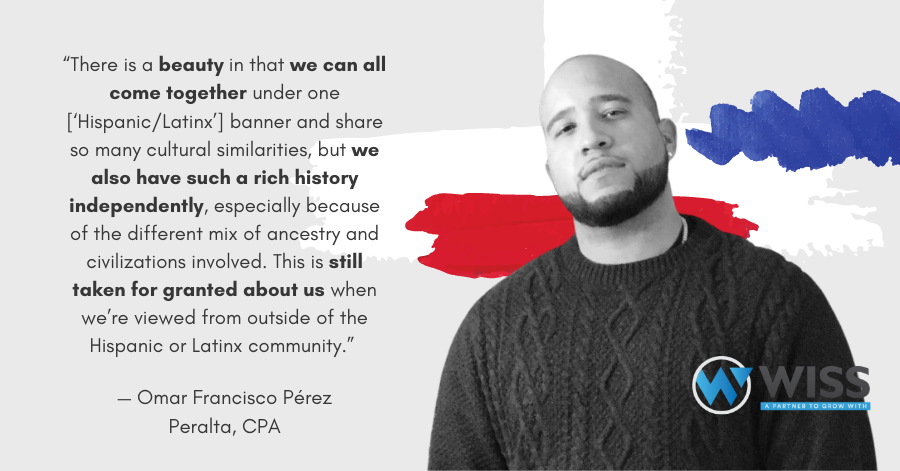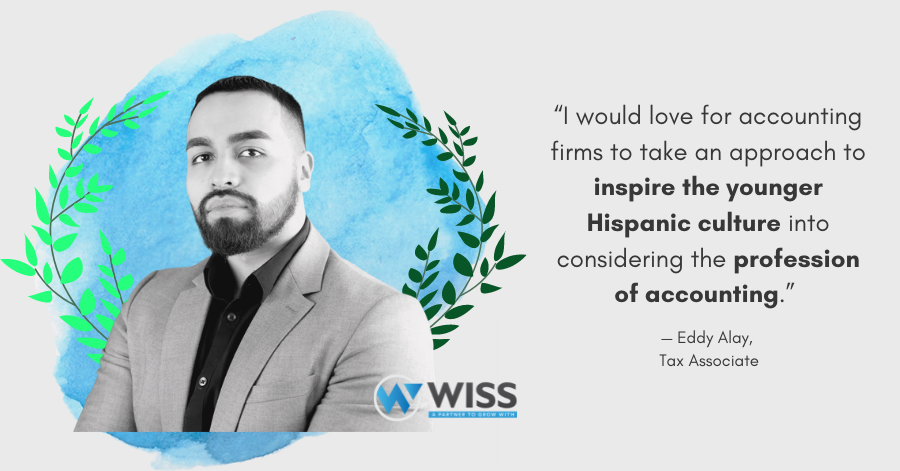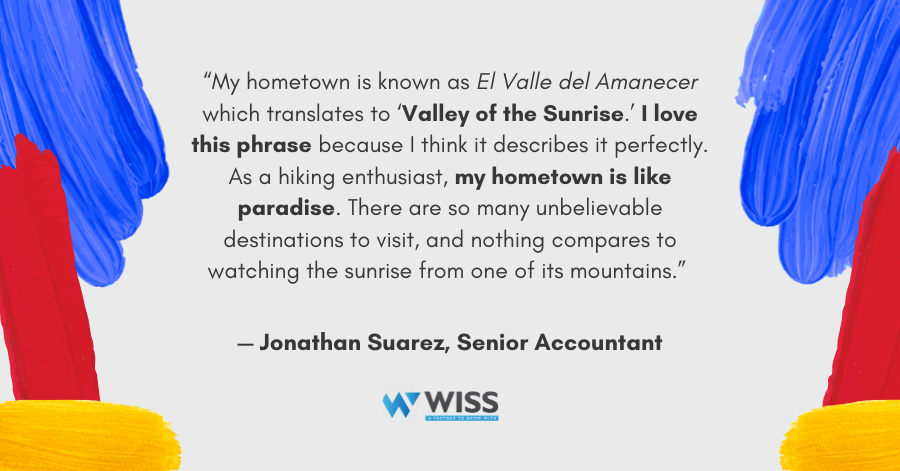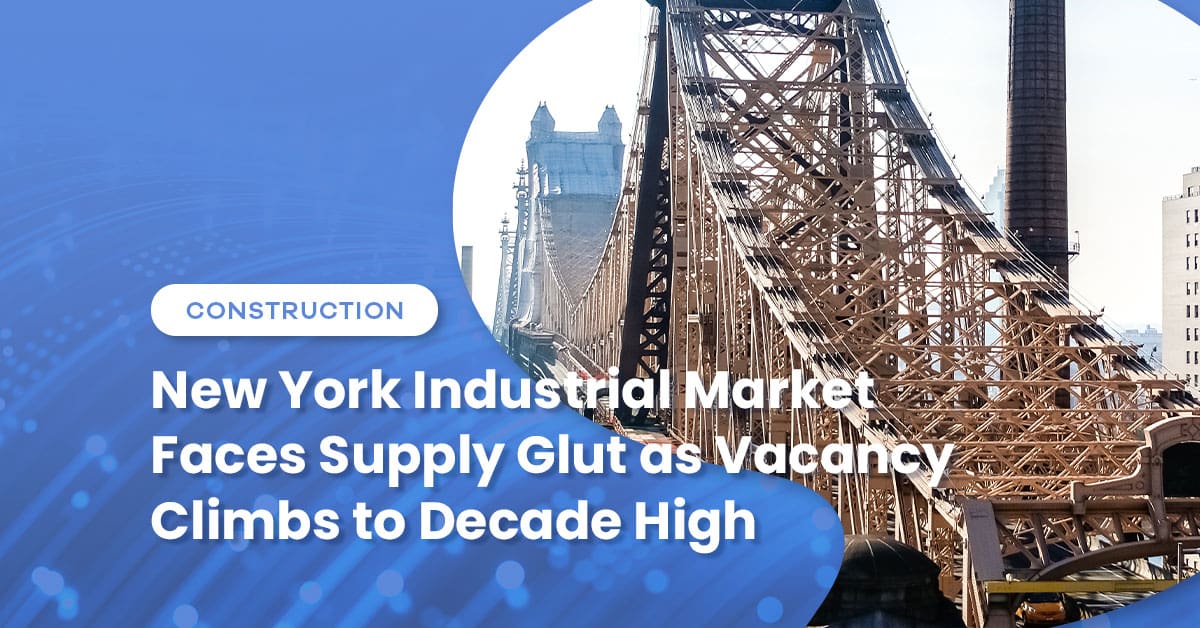Wiss employees Eddy Alay, Omar Francisco Pérez, Jonathan Suarez and Isaiah Torres share their stories in light of Hispanic Heritage Month, a period that formally celebrates the immeasurable contributions of Hispanic and Latinx Americans to US economy, culture and society.
The theme of this year’s Hispanic History month is Esperanza (Hope). What are you most hopeful of in terms of Hispanic and Latinx representation in the workforce, today and in the future?
Omar Perez: Ownership. I think it’s great that we’re making professional strides in the Unites States and continue adding to our representation, and that we’re valued employees, but I think a key hope for any community is to attain representation in ownership.
Could you tell us a little bit about your background?
Omar: This could be a very long story with a lot of detours! I was born in Santo Domingo, Dominican Republic and arrived to stay in the U.S. a little before my 5th birthday. My life in the U.S. ultimately began in the Bronx, staying there until half of middle school and then crossing over the bridges to become a Jersey boy (‘Joizey), for life, at this point.
Professionally, I didn’t start college until 23, and working a white-collar trade until 27. There were many professionals in my family in Dominican Republic, even if only a few of them were able to continue their professions after immigrating to the US. I’m just doing my best to carry on tradition; better late than never. After working at large, niche firms and gaining my CPA license and experience, I joined Wiss. I’m here among you fine folks, looking to grow with you!
How has your Hispanic or Latinx heritage shaped who you are as a person?
Omar: As an immigrant, and as someone who can’t “pass” (that’s an actual thing), my heritage is my identity, whether I want it to be or not. But both my culture and my experiences as a Hispanic Latino in America (and my understanding of Hispanic and Afro-Latino heritage on the world stage, from a global perspective) have shaped me as a person. I was blessed to be born and raised in a great family, regardless of our economic status both here and there, and my family is absolutely the most positive conduit of the beauties of my heritage, locally as Dominicans, and globally as Hispanic/Latinos.
I embrace my heritage and as an adult, I try to immerse myself in it and discover those parts that I did not learn about earlier simply because I was not raised where I was born. My heritage, like many of the Latin Caribbean, is very much a product of deep African roots blended with the indigenous elements of the islands, mixed with the fabric of the Spanish, French, and Portuguese tapestry being woven colonially. It’s a sordid history but resulted in a beautiful mix.
Is there something about the Hispanic or Latinx community that isn’t appreciated enough or known about?
Omar: The very significant cultural differences that can exist. We are a collective heritage/culture held together by a colonial language and its respective customs. But independently, we are also distinct cultures with unique heritages that can be very different between Central and South America and the Caribbean (and now also North America as many of us are being born and then assimilated into American and even Canadian communities). There is a beauty in that we can all come together under one banner and share so many cultural similarities, but we also have such a rich history independently, especially because of the different mix of ancestry and civilizations involved. This is still taken for granted about us when we’re viewed from outside of the Hispanic or Latinx community.
Some valuable recommendations!
A killer cocktail?
Omar: Mamajuana (the drink, not the restaurant).
A dish everyone must try?
Omar: Mangu con los 3 golpes (breakfast: plantains, fried eggs, fried salami, fried cheese) and habichuela con dulce (a sweet bean dessert).
A phrase you love?
Omar: Mas sabe el diablo por viejo que por diablo. This proverb means, “The devil knows more because he’s old than because he’s the devil.” It’s a phrase elders use as a token of wisdom. Respect the elders because experience is the best teacher and time reveals all.

 Previous
Previous






